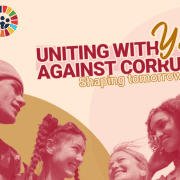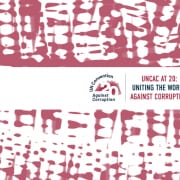|
Getting your Trinity Audio player ready...
|
Corruption Watch (CW), and other organisations and individuals around the world, have said it time and again – corruption is inextricably linked with the abuse of human rights. Simply put, where human rights are violated, corruption will inevitably be involved.
The intersection of human rights and corruption is easy to spot. It is all around us, in all facets of society – when medical or clinic staff ask for bribes before examining a patient or dispensing vital medication, people’s constitutional right to health is immediately undermined. When building regulations are bypassed, there is great danger that people will be hurt or lose their lives. When the police service as a whole is perceived to be highly corrupt, people’s constitutional right to safety and security is compromised.
The failure of local municipalities to deliver on their mandate to provide reliable basic services, and the continued corruption, nepotism, mismanagement of public money, and other transgressions, means that residents’ quality of life declines and they are deprived of the fundamental human rights to which they are entitled.
Meanwhile the perpetrators of these ills, and more, live comfortably in their well-appointed and -supplied homes, drive safely in their luxury cars, and watch their bank balances climb steadily.
Now the UN General Assembly has formally linked corruption to the violation of fundamental human rights. During its 59th session held in July 2025, the organisation’s Human Rights Council adopted a resolution titled The negative impact of corruption on the enjoyment of human rights. The move was led by Morocco – who introduced the draft text before the council – Argentina, Austria, Brazil, Ecuador, Ethiopia, Indonesia, Poland, and the UK.
“An approach based on human rights must be at the very heart of all efforts to combat corruption,” said the Moroccan representative. “We would call upon the members of this council to support the adoption of this council by consensus, to convey the message that the fight against corruption cannot be disassociated from promoting and protecting human rights.”
The council adopted resolution A/HRC/59/L.6 without a vote, nor were there any requests for a vote. According to the UN, “When consensus on the text is reached, in the General Assembly all member states agree to adopt the draft resolution without taking a vote. Adopting a draft without a vote is the most basic definition of what consensus means. If 192 member states agree on the text, but just one member state requests a vote, then consensus is not reached.”
Harmful effects of corruption
The resolution signifies a profound change in how the UN views corruption, because it is no longer merely a matter of developmental delays, poor governance, or economic exclusion. It is now a matter of upholding people’s most basic human rights.
“Corruption frequently results in discriminatory access to public services and goods, and renders those in vulnerable situations more prone to adversely suffering from the negative social and environmental impact of economic activities,” the resolution noted.
It went further to say that “Corruption is even more damaging in times of crisis, has the potential to seriously undermine good governance around the world, erodes public trust in government, and constitutes an obstacle to work to achieve the Sustainable Development Goals.”
In addition, stated the resolution, the continuing diversion of critical resources due to corruption poses an even greater threat to governments’ ability to protect the right of everyone to the enjoyment of the highest attainable standard of physical and mental health and the right to life. This means that in South Africa, the provisions of the Bill of Rights must be upheld without exception.
“Good governance, democracy and the rule of law, and the promotion and protection of human rights and fundamental freedoms, including the right to seek, receive, and impart information, the right to take part in the conduct of public affairs, and the right to a fair trial before a competent, independent and impartial court, established by law, are essential in domestic efforts to prevent and fight against corruption.”
Among other points, the resolution put out a call for governments to:
- consider ratifying or acceding to the UN Convention Against Corruption without delay, if not already done.
- maintain a safe, enabling environment in which civil society, journalists, academics, activists, whistle-blowers, law enforcement officials, and others can freely do their work and report corruption without fear of retaliation.
- create an environment in which the media can operate without fear to report on and expose corruption and increase public awareness of the link between corruption and human rights abuse.
- acknowledge that marginalised communities bear the heaviest burden of corrupt activities.
- promote awareness-raising, education, and training regarding the impact of corruption on human rights.
- step up co-operation nationally, regionally, and internationally, as a means of contributing positively to the promotion and protection of human rights.
The Human Rights Council ended its resolution by committing to remain seized with the matter.







